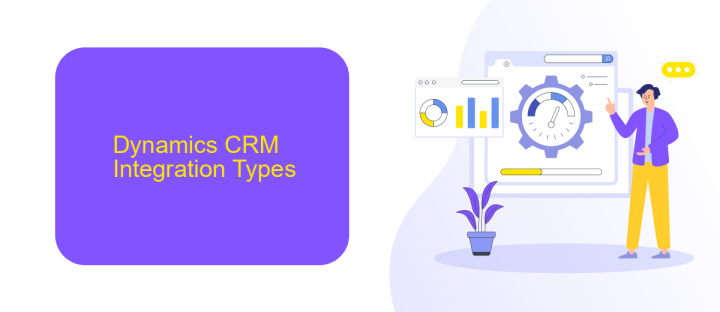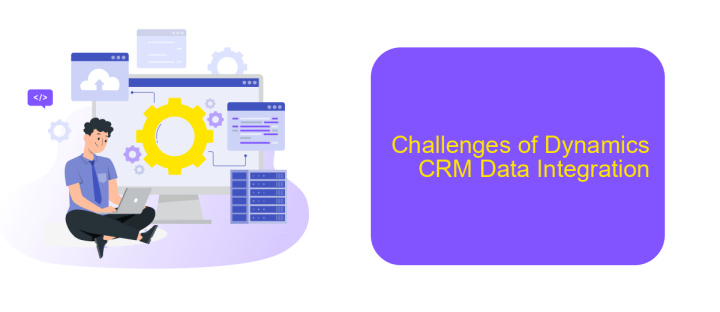Dynamics CRM Data Integration
In today's competitive business landscape, integrating Dynamics CRM with other data systems is crucial for streamlined operations and enhanced customer insights. Dynamics CRM Data Integration enables organizations to synchronize customer data, automate workflows, and generate comprehensive reports, ultimately driving more informed decision-making and improved customer relationships. This article explores the key benefits, challenges, and best practices for effective data integration with Dynamics CRM.
Introduction
Dynamics CRM Data Integration is a critical aspect for businesses aiming to streamline their customer relationship management processes. Integrating data from various sources ensures that all customer information is centralized, accurate, and up-to-date, which in turn enhances decision-making and operational efficiency.
- Improved data accuracy and consistency
- Enhanced customer insights and analytics
- Simplified data management processes
- Seamless communication between different systems
One effective tool for achieving seamless Dynamics CRM data integration is ApiX-Drive. This service allows businesses to automate data transfer between Dynamics CRM and other applications without requiring any coding skills. By using ApiX-Drive, companies can ensure that their CRM system is always populated with the most current data, facilitating better customer service and more informed business strategies.
Dynamics CRM Integration Types

Dynamics CRM integration can be broadly categorized into several types, each serving distinct business needs. One common type is data synchronization, which ensures that information is consistently updated across different systems. This type of integration is essential for maintaining data accuracy and operational efficiency. Another type is process integration, which involves automating workflows between Dynamics CRM and other applications, thereby streamlining business processes and reducing manual efforts.
Additionally, real-time integration allows for instantaneous data exchange, providing up-to-date information for decision-making. For businesses looking for a seamless integration experience, services like ApiX-Drive can be invaluable. ApiX-Drive simplifies the process of connecting Dynamics CRM with various other platforms, offering a user-friendly interface and robust automation capabilities. By leveraging such tools, organizations can achieve efficient and scalable integrations, enhancing their overall productivity and customer relationship management.
Benefits of Dynamics CRM Data Integration

Integrating Dynamics CRM with other business systems can significantly enhance operational efficiency and data accuracy. By unifying customer data across multiple platforms, businesses can gain a holistic view of customer interactions and streamline their processes.
- Improved Data Accuracy: Integration reduces the risk of data duplication and errors, ensuring that customer information is consistent and up-to-date across all systems.
- Enhanced Customer Experience: With a unified view of customer data, businesses can provide more personalized and timely interactions, leading to increased customer satisfaction and loyalty.
- Increased Productivity: Automation of data transfer between systems minimizes manual data entry, allowing employees to focus on more strategic tasks.
- Better Decision Making: Access to comprehensive and accurate data enables more informed decision-making and strategic planning.
- Scalability: Integration solutions like ApiX-Drive make it easy to connect Dynamics CRM with various other applications, allowing businesses to scale their operations seamlessly.
By leveraging integration tools such as ApiX-Drive, businesses can automate the synchronization of data between Dynamics CRM and other platforms, reducing the complexity and time required for manual data management. This not only enhances operational efficiency but also supports the growth and scalability of the business.
Challenges of Dynamics CRM Data Integration

Integrating Dynamics CRM with other systems presents several challenges that organizations must address to ensure seamless data flow and operational efficiency. One of the primary issues is data consistency, where discrepancies between different data sources can lead to inaccurate reporting and decision-making.
Another significant challenge is data security. Ensuring that sensitive customer information remains protected during the integration process is paramount, requiring robust encryption and access control mechanisms. Additionally, the complexity of integrating data from multiple sources can lead to increased implementation time and cost.
- Data consistency and accuracy
- Data security and privacy concerns
- Complexity of integration processes
- High implementation time and cost
To mitigate these challenges, leveraging integration platforms like ApiX-Drive can be highly beneficial. ApiX-Drive simplifies the process by providing a user-friendly interface and pre-built connectors for various systems, reducing the complexity and time required for integration. This ensures that data flows seamlessly between Dynamics CRM and other applications, maintaining consistency and security throughout the process.
- Automate the work of an online store or landing
- Empower through integration
- Don't spend money on programmers and integrators
- Save time by automating routine tasks
Best Practices for Dynamics CRM Data Integration
When integrating data with Dynamics CRM, it's essential to follow best practices to ensure seamless and efficient operations. Start by thoroughly planning your integration strategy, including defining clear objectives and understanding the data flow between systems. Regularly backup your data to prevent loss during the integration process. Ensure that data mappings are precise and consistent to avoid discrepancies and errors. Additionally, consider using middleware solutions like ApiX-Drive to streamline the integration process, allowing you to connect various applications without extensive coding knowledge.
Another critical aspect is maintaining data quality and integrity. Implement data validation rules and regularly monitor data for inconsistencies or duplicates. It's also crucial to manage data security by setting up appropriate access controls and encryption methods. Schedule regular audits to review integration performance and make necessary adjustments. Finally, keep your CRM and integrated systems updated to leverage new features and security enhancements. By adhering to these best practices, you can optimize your Dynamics CRM data integration efforts and achieve more reliable and efficient outcomes.
FAQ
What is Dynamics CRM Data Integration?
Why is data integration important for Dynamics CRM?
How can I automate data integration with Dynamics CRM?
What challenges might I face when integrating Dynamics CRM with other systems?
Can I integrate Dynamics CRM with cloud-based applications?
Time is the most valuable resource in today's business realities. By eliminating the routine from work processes, you will get more opportunities to implement the most daring plans and ideas. Choose – you can continue to waste time, money and nerves on inefficient solutions, or you can use ApiX-Drive, automating work processes and achieving results with minimal investment of money, effort and human resources.


